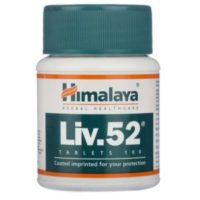Description
Drug Uses
Persantine is used for preventing blood clots after heart valve surgery. It is used in combination with anticoagulants (eg, warfarin). It may also be used for other conditions as determined by your doctor.
How Taken
Use Persantine as directed by your doctor. Take Persantine on an empty stomach at least 1 hour before or 2 hours after eating. It may be taken with food if it upsets your stomach.
Warnings/Precautions
Before taking Persantine, tell your doctor or pharmacist if you have any medical conditions, especially if you have allergies to medicines, foods, or other substances, if you are allergic to any ingredient in Persantine, if you have severe heart disease, chest pain, low blood pressure, or liver problems, or you have recently had a heart attack, if you are pregnant, planning to become pregnant or are breast–feeding. If you become pregnant, contact your doctor. You will need to discuss the benefits and risks of using Persantine while you are pregnant. Persantine is found in breast milk. If you are or will be breast–feeding while you use Persantine, check with your doctor. Discuss any possible risks to your baby. Some medicines may interact with Persantine. Therefore tell your doctor of all prescription or nonprescription medicine, herbal preparation, or dietary supplement that you are taking. Persantine may cause dizziness, lightheadedness, or fainting, alcohol, hot weather, exercise, or fever may increase these effects. To prevent them, sit up or stand slowly, especially in the morning. Sit or lie down at the first sign of any of these effects. Tell your doctor or dentist that you take Persantine before you receive any medical or dental care, emergency care, or surgery. Elderly patients may be more sensitive to the effects of Persantine and might require a lower dose or special monitoring during treatment. Persantine should not be used in children younger than 12 years old, safety and effectiveness in these children have not been confirmed.
Missed Dose
If you miss a dose take it as soon as you remember. However if it is almost time for the next dose, skip the Missed Dose and continue your regular dosing schedule. Do not take a double dose to make up for a missed one.
Possible Side Effects
Some of the Possible Side Effects are– Diarrhea, dizziness, flushing, headache, itching, stomach pain, vomiting. Contact your doctor if any of these or other side effects occur. If you experience any of the following serious side effects, you should seek medical attention immediately– allergic reactions (rash, hives, itching, difficulty breathing, tightness in the chest, swelling of the mouth, face, lips, or tongue), chest pain, fast heartbeat, hepatitis, pounding in the chest, swelling of throat.
Storage
Store Persantine at 59 – 86 °F (15 – 30 °C). Store away from heat, moisture, and light. Do not store in the bathroom. Keep Persantine out of the reach of children.
Overdose
If overdose is suspected seek medical attention immediately. Some of the symptoms of Persantine overdose are– depression, diarrhea, low blood pressure, vomiting.
More Information
Persantine may cause dizziness. These effects may worsen if Persantine is taken with alcohol or certain other medications. Use Persantine with caution. Do not drive or perform other possibly unsafe tasks until you know how you react to this drug. If your symptoms do not improve or if they worsen, contact your doctor. Persantine should be used only by the patient for whom it has been prescribed. Do not take less or more or take it more often than prescribed by your doctor.
Disclaimer
This is only general information, it does not cover all directions, drug integrations or precautions. You should not rely on it for any purpose, it does not contain any specific instructions for a particular patient. We disclaim all responsibility for the accuracy and reliability of this information. We`re not responsible for any damage.




Reviews
There are no reviews yet.